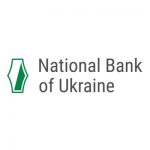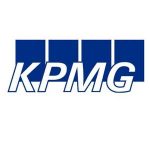International Trade Finance
Course description
This is a unique opportunity to complete this programme remotely via a live webinar conducted over 3 x 4.5 hrs sessions on 2, 4, 8 Dec between 9.30 a.m. and 2 p.m. UK time.
The course is delivered by a senior expert with over 20 years of international experience.
We will cover the same material as during our course in London but you will benefit from an attractive price and additional savings on travel and, if you are based outside of the EU – also VAT.
On completion you will receive a comprehensive set of course materials and course certificate.
This programme can be arranged as in-company online webinar. Contact us to discuss your requirements.
________________________________________________
This intensive 2 day Trade Finance course has been tailored for professionals in banking, commerce and trade and industry who need to gain a closer understanding of International Trade Finance.
What will you learn
By the end of this course you will have a sound understanding of:
- Foreign exchange & currency principles
- The underlying operations and processes in the international trade environment
- How trade finance is provided
- Trade finance instruments
- International payments
- Supply Chain Finance
You may be interested in one of our public courses:
- International Securities Settlement & Custodial Services
- International Payments
- Mastering Operational Risk Management
- Audit & Compliance in International Trade Finance
- LIBOR Transition & Benchmarking Reform
Register for any 2 of our courses and save £100 + VAT (in total, not per course).
Main topics covered during this training
- Structured Trade Finance
- Foreign Exchange risk
- Structured vs Secured Trade Finance
- Using collateral to manage credit risk
- Pre and post-shipment Trade Finance Instruments
- Trade Payments
- Sources of Trade Finance
- Loan Syndication
- Preparing documentation
- International Trade Payment Instruments
- International Payment Systems
- CHIPS
- Correspondent Banking
- Supply Chain Finance
Who should attend
The course will be of value to professionals in the following areas:
- Commercial bankers from front/middle/back offices
- Commercial bankers dealing with the Forex market
- Trade finance practitioners
- Trading company managers, senior and operations staff
- Risk managers and risk management officers
International Trade Finance - 2 Day Course Programme
Introduction to Trade Finance
- Why international trade finance is important
- The building blocks of International Trade
- What is different about international financial management?
- Foreign Exchange risk
- Multinational enterprises and their types
The International Monetary System
- A brief history of international financial systems
- Floating exchange rates
- European Monetary Union
- Exchange rate systems
- Fixed rates
- Managed floats
- Aspects of the ideal system
- The impossible “Trinity”
- Fixed vs floating rates
Introduction to Structured Trade Finance
- Using collateral to manage credit risk
- Why Structured Finance matters
- Principles of collateralized finance
- Secured Vs Structured Finance
Trade Finance Instruments
This section introduces the basics of trade finance. We discuss how traditional techniques of pre- and post-shipment finance relate to financing forms such as forfaiting, countertrade, structured finance, Islamic finance, securitization etc.
- Typical forms of international trade & commodity finance
- International trade finance and trade payments
- Tools of international trade finance (covering both pre-shipment and post-shipment finance)
- Pre-shipment finance Instruments (such as bank overdrafts, term loans, credit lines, foreign currency denominated trade facilities, open local or international Letters of Credit, Leasing or hire/purchase arrangements, Guarantees)
- Post-shipment finance Instruments (such as credit, draft negotiation, discounting, Letters of Credit, Documentary Collections)
- Integrating pre- and post-shipment finance
Case Study: Using trade paper to finance domestic grain trade.
Sources of Trade Finance
- We examine various sources of finance for international trade including:
- Supplier’s credit
- Banks – local & international
- Buyer’s credit
- Export credit agencies
- Multilateral financial institutions
- Governments
- Investment management companies
Loan Syndication
- Types of syndication
- The loan syndication process
- Advantages of loan syndication
Operating Examples of Various Trade Finance Instruments
- We examine detailed working examples of a range of Trade Finance Instruments. This includes:
– Short-term pre-shipment financing (L/C-Based)
– Medium-term pre-shipment financing with no bank guarantee (contract-based)
– Construction financing for overseas plants in combination with an export credit agency
– Account receivable-based financing
– Structured commodity financing
International Trade Payment Instruments
- The underlying problems of international trade
- Trade payment mechanisms and risk
- Risks for exporter/seller of the different payment terms
- Payment mechanism choices
We examine each instrument in depth; what it is, how it works, when one should use it, the advantages and disadvantages of each as well as the risks
- Open account
- Real instrument or just a marketing ploy?
- Payment/ cash in advance
- Disadvantages to the exporter/ seller
- Documentary collections
- The role of banks
- Detailed expose of the Documentary Collection process including detailed flow charts
- Documentary collection variations
- Documentary credits:
- Documentary Credit process in detail
- Banks and Documentary credits
- Letter of Credit fraud
- Country credit lines
- The role that documents play
- Problems caused by improper documents
- Master Agreements and their uses
- Shipper’s Indemnities
- Revolving Letter of Credit
- Letter of Credit costs
- Stand-By Letters of Credit as a payment instrument
- Documentation
International Payment Systems
- How international payments are made
- The purpose of a payment system
- International payments characteristics
- The payment process
Payments in US Dollars – CHIPS
We explore the CHIPS dollar payment system it terms of its day-to-day operations and settlements
Correspondent Banking
- A survey of correspondent banking, what it is, its operations and how payments are settled
- CLS and its role in settling international trade payments
- Foreign exchange risk
- How CLS operates
Supply Chain Finance
- Supply Chain Finance – What it is
- Buyer/ supplier payment dynamics
- Payment terms and risk
- Supply Chain finance in international trade
- The challenges of the Letter of Credit
- Trade settlement risk
- Unbalanced trade terms
Supply Chain Finance example
- Benefits
- Funding options
- Funding variations and new developments
- Supply Chain Finance Vs Traditional methods
- Pre-Export financing
- Inventory financing
- Post-Export financing
Trainer
Richard’s professional experience spans over 25 years. He started his career with Wells Fargo Bank, following by Fundtech and then moving to international advisory and consulting for the private and high-tech sectors providing high-level consulting, business analysis, project management and training to a wide range of banking clientele across the globe.
Over his career Richard was involved in International Trade Finance, Cross Border Payments and Settlements, Operational Risk, AML and Corporate Governance amongst others.
He has spent extensive time servicing a diversity of financial institutional clients in many countries including: UK, Ireland, China, Singapore, Hong Kong, Philippines, Korea, Malawi, Ghana, Nigeria, Kenya, South Africa, Poland, Sweden, Netherlands, Greece, Norway, Bermuda and across North America.
Clients that Richard has trained & consulted to include: JP Morgan, Abu Dhabi Commercial Bank, Qatar Exchange, Abu Dhabi Investment Authority, Central Bank of Egypt, Irish Gas, UBS, Central Bank of Ireland, Central Bank of Norway, Merrill Lynch, PGGM, BP, Asian Development Bank, African Development Bank, Instinet, Fundtech, European Central Bank, Brunei Investment Agency, British Steel Pension Fund, Salesforce and Tullet Prebon amongst others.
FAQ
We offer banking and finance courses as well as soft skills and business management training. You can either attend an open public course in London or Dubai or arrange customised in-house training to be delivered in any of your offices worldwide.
Most of our public courses are run over 2 full days. Some programmes are offered as a 1 or 3 day training.
In-house training is tailored to client’s requirements and can be organised over 1 day, 2-3 weeks or longer.
Public courses are organised mainly in London and Dubai. Occasionally we organise courses in other centres like Paris or New York. Check our public course calendar for the current list of programmes. We use a range of training venues, all in the centre of the cities and with excellent transport links to the airports and train stations.
In London we use venues in the centre (near Oxford Circus station or in Mayfair) or in the City (near Liverpool Street or Moorgate stations).
In Dubai our courses are organised in one of 4-5* hotels in the Deira district. Once you register we will send you detailed information together with accommodation options if required.
Our in-house courses can be delivered anywhere in the world. We work with over 25 trainers worldwide. Contact us do discuss your requirements. Check our list of available programmes.
Our courses are run in central locations from 9 a.m until 5-5.30 p.m. There are 2 coffee breaks and a lunch break. Lunch is always provided in the venue.
Dress code is smart casual.
All our programmes are taught by senior specialists who have spent many years in their respective sectors, working as senior managers and head of departments, so they understand very well the market and the challenges you are facing.
The experience of our trainers allows us to create very practical programmes, focused on current market trends and challenges. You can be sure that you will gain the knowledge which can be instantly applied in your workplace after the course. You will be analysing real life case studies, take part in group exercises and discussions as well as role plays, whenever applicable.
We want our courses to be as practical and interactive as possible so we limit the number of participants in order to optimise your time with the trainer and allow you to ask questions which are important for you.
In order to understand your requirements and expectations, we will send you a pre-course questionnaire.
You will also receive post-course support so if you have any questions after you left the training, you are welcome to contact us.
There are 2 easy ways to register:
- Go to the course of your choice and click Register Now button to fill the registration page
- Email us to enquiry@eurekafinancial.com
After you register, we will send you registration confirmation and an invoice so you can arrange the payment. Please note that your place is not confirmed until we receive it.
If you register within Early Bird discount period, there’s limited time to arrange the payment in order to be eligible for the discount. You will find all the details on the invoice.
We don’t advise to make any travel and hotel arrangements until you receive full course confirmation from us.
We will send you venue and course details as soon as possible but most likely about 3-4 weeks prior to the course commencement.
You can pay by:
- Making a bank transfer
- Debit/credit card
- Cheque payable to Eureka Financial Ltd. - only within UK
Just mark preferred paying option on the registration form. Whichever form of payment you choose we will always send you an invoice.
If you pay by card, a 2.2% processing fee will be added. We will send you authorisation form so you can give us your card details.
Included in the price of a public course are:
- Course tutorial
- Take away course materials
- Course Certificate
- Lunch on the days of the training as well as drinks and snacks throughout the course
The price doesn’t include accommodation, flights, transfers and any additional costs outside of the training venue.
Yes, we always offer Early Bird discount, so the sooner you register the more savings you can make. We also offer group discounts and if you register for 2 or more programmes at the same time.
If you are a full time student or unemployed, we offer a 25% discount of the full price of the training. Student ID or unemployment status confirmation is required to claim this discount.
If you attend one of our courses you will be entitled to a special discount for a year after the last course you attend with us. Also, if you have attended and recommended us to a friend, both you and your friend will receive a special discount. You will receive more information about it after you attend the course.
See our Customer Loyalty Discounts page for more details.
All our courses based in the UK are subject to the VAT charge of 20%. This fee is irrespective of the country of residence of the delegates.
You can, however, claim the VAT back by contacting UK tax office - HMRC, and filling the relevant form, as long as you comply with the following rules:
For Delegates coming from the EU countries
If you represent a registered business in another EU country, you can use the Refund Scheme to reclaim VAT you pay in the UK as long as all of the following apply:
- You're not registered for VAT in the UK and don't have to, or can't be, registered here
- You don't have a place of business or a residence in the UK
- You don't make any supplies in the UK
You can find some more information here. In order to claim the VAT you have to fill Form 65.
For the Delegates from Non EU countries
If you represent a registered business in a non-EU country, you can use the Refund Scheme to reclaim VAT you pay in the UK as long as all of the following apply:
- You're not registered for VAT in the UK and don't have to, or can't be, registered here
- You don't have a place of business or a residence in the EU
- You can only use the Refund Scheme if your own country operates a similar scheme and makes it available to UK businesses. If your country has its own Refund Scheme but doesn't let UK businesses use it, you can't claim under the UK Refund Scheme.
- You don't make any supplies in the UK
If the following rules apply to you, please fill the 65A form and send it to HMRC.
Webinars
You can cancel your participation up to a month before the course and receive a refund minus 10% of the full course value. Between 2-4 weeks before the course you will be charged 50% cancellation fee and if you cancel less than 2 weeks before the course you can only offer your place to a colleague. Up to 2 weeks before the course you can reregister for another edition for 10% reregistration fee if there is another webinar offered or you can rebook for a course in London by paying the difference in price plus 10% reregistration fee.
Classroom Courses
If there is any official travel restriction or difficulty related to the COVID pandemic around the time of the course we will convert the training into a webinar or offer to attend the next classroom edition at no extra cost.
If you are unable to attend the course, you can either send a replacement at no extra charge or, up to 10 days before the training, you can transfer your booking to another edition within the next 6 months paying administrative fee of 20% of the full course price. For any cancellation requests received between 11 days and 4 weeks from the course we offer 50% refund or reregistration to another edition for 25% of the value of the booking. For any cancellation requests received more than 4 weeks before the course date we will offer a refund less an administration fee of 10% of the full course price.
Cancellations must be made in writing (letter or email) and reach our office four weeks prior to the course date. We regret that only limited refunds can be given after this period as per points above. Non-attendance without any notification will be charged at full rate. Your place on a course is not guaranteed until we receive the payment. All payments must be made in full before the course date.
All our trainers have been working for many years in their respective sectors before they begun to teach so they bring a wealth of practical experience to the classroom.
Most of them used to work for 15 or more years in the financial sector and corporate world, and were holding positions of Directors, VP and Senior Managers. Some of them have published books and have written articles for specialised magazines and newspapers including FT, The Independent, The Times etc. You can find detailed biography of each trainer on the page of the course you want to register for.
Yes, you will receive a Certificate of Attendance at the end of the course you attend.
If you have to apply for a Visa to attend a course in the UK, we will issue a letter to support your application. The letter will be issued only after the payment for the course has been made.
It is delegate’s responsibility to obtain a Visa and failure to do so will not make the participant exempt from the cancellation policy.
Anyone suspected of applying for a training course simply to gain a Visa letter will be reported to their embassy.
We will need the following information to issue an invitation letter:
- Full name as it appears on your passport
- Date of birth
- Passport number
- Passport issue date
- Passport expiry date








